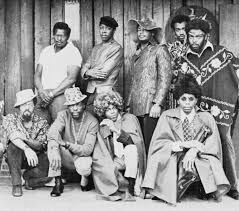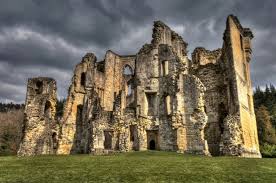Mini Sheet: Historical Events (Ireland 2000)
Historical Events (Ireland 2000)
01 January (Ireland ) within release Millennium goes into circulation Mini Sheet Historical Events face value 12*30 Irish penny
| Mini Sheet Historical Events in catalogues | |
|---|---|
| Michel: | Mi:IE 1206-1211 KB |
Mini Sheet is vertical format.
Also in the issue Millennium:
- Stamp - Celebrating the Millennium. James Joyce 1882-1941 face value 30;
- Stamp - Celebrating the Millennium. Leonardo da Vinci 1452-1519 face value 30;
- Stamp - Celebrating the Millennium. John Lavery 1856-1941 face value 30;
- Stamp - Celebrating the Millennium. William Shakespeare 1564-1616 face value 30;
- Stamp - Celebrating the Millennium. Norman Invasion 1169 face value 30;
- Mini Sheet - Historical Events face value 12*30;
- Stamp - Celebrating the Millennium. Flight of the Earls (1607) face value 30;
- Stamp - Celebrating the Millennium. Irish Parliament (1782) face value 30;
- Stamp - Celebrating the Millennium. Land League face value 30;
- Stamp - Celebrating the Millennium. Irish Independence (1922) face value 30;
- Stamp - Celebrating the Millennium. UN Peace-Keeping face value 30;
- Stamp - Celebrating the Millennium. Rev. Nicholas Callan 1799-1864 face value 30;
- Stamp - Celebrating the Millennium. Birr Telescope face value 30;
- Stamp - Celebrating the Millennium. Thomas Edison 1847-1931 face value 30;
- Stamp - Celebrating the Millennium. Albert Einstein 1879-1955 face value 30;
- Stamp - Celebrating the Millennium. Marie Curie 1867-1934 face value 30;
- Stamp - Celebrating the Millennium. Galileo 1564-1642 face value 30;
- Stamp - Celebrating the Millennium. Beethoven (1770–1827 face value 30;
- Stamp - Celebrating the Millennium. French Revolution 1789 face value 30;
- Stamp - Celebrating the Millennium. Industrial Revolution face value 30;
- Stamp - Celebrating the Millennium. Peace 1945 face value 30;
- Stamp - Celebrating the Millennium. Modern Communications face value 30;
- Stamp - Celebrating the Millennium. Womens Liberation face value 30;
- Stamp - Celebrating the Millennium. Berlin Wall 1989 face value 30;
Mini Sheet Historical Events it reflects the thematic directions:
A vehicle (from Latin: vehiculum) is a mobile machine that transports people or cargo. Typical vehicles include wagons, bicycles, motor vehicles (motorcycles, trucks, buses), railed vehicles (trains, trams), watercraft (ships, boats), aircraft and spacecraft. Land vehicles are classified broadly by what is used to apply steering and drive forces against the ground: wheeled, tracked, railed or skied. ISO 3833-1977 is the standard, also internationally used in legislation, for road vehicles types, terms and definitions.
A flag is a piece of fabric (most often rectangular or quadrilateral) with a distinctive design that is used as a symbol, as a signaling device, or as decoration. The term flag is also used to refer to the graphic design employed, and flags have since evolved into a general tool for rudimentary signalling and identification, especially in environments where communication is similarly challenging (such as the maritime environment where semaphore is used). National flags are patriotic symbols with varied wide-ranging interpretations, often including strong military associations due to their original and ongoing military uses. Flags are also used in messaging, advertising, or for other decorative purposes. The study of flags is known as vexillology, from the Latin word vexillum, meaning flag or banner.
A millennium (pl. millennia or millenniums) is a period of one thousand years, sometimes called a kiloannum (ka), or kiloyear (ky). Normally, the word is used specifically for periods of a thousand years that begin at the starting point (initial reference point) of the calendar in consideration and at later years that are whole number multiples of a thousand years after the start point. The term can also refer to an interval of time beginning on any date. Millennia sometimes have religious or theological implications (see millenarianism).
In modern politics, and history, a parliament is a legislative body of government. Generally, a modern parliament has three functions: representing the electorate, making laws, and overseeing the government via hearings and inquiries. The term is similar to the idea of a senate, synod or congress and is commonly used in countries that are current or former monarchies. Some contexts restrict the use of the word parliament to parliamentary systems, although it is also used to describe the legislature in some presidential systems (e.g., the Parliament of Ghana), even where it is not in the official name.
Ruins (from Latin ruina 'a collapse') are the remains of a civilization's architecture. The term refers to formerly intact structures that have fallen into a state of partial or total disrepair over time due to a variety of factors, such as lack of maintenance, deliberate destruction by humans, or uncontrollable destruction by natural phenomena. The most common root causes that yield ruins in their wake are natural disasters, armed conflict, and population decline, with many structures becoming progressively derelict over time due to long-term weathering and scavenging.
An anniversary is the date on which an event took place or an institution was founded in a previous year, and may also refer to the commemoration or celebration of that event. For example, the first event is the initial occurrence or, if planned, the inaugural of the event. One year later would be the first anniversary of that event. The word was first used for Catholic feasts to commemorate saints. Most countries celebrate national anniversaries, typically called national days. These could be the date of independence of the nation or the adoption of a new constitution or form of government. The important dates in a sitting monarch's reign may also be commemorated, an event often referred to as a "Jubilee".





